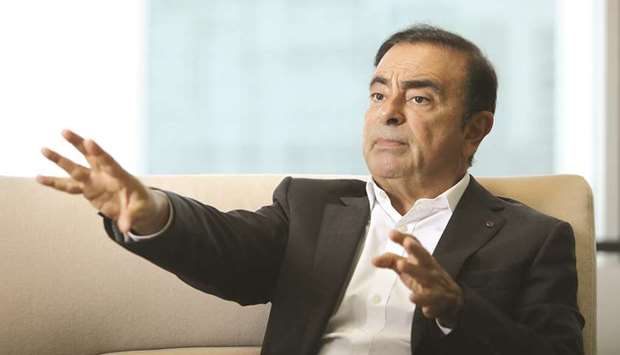Emmanuel Macron had no idea that Nissan Motor Co was preparing to overthrow Carlos Ghosn.
As Ghosn’s arrest on Monday in Tokyo raised questions about Nissan’s alliance with French auto giant Renault, the head of state followed the crisis through the headlines, just like his finance minister and the officials in charge of the state’s stake in Renault, two officials with knowledge of the matter said.
They had no warning that trouble was brewing for 64-year-old Ghosn, a French-Lebanese high-flyer, and more importantly, how that threatened to destabilise the pact between Nissan and Renault, the officials said.
“This is the kind of information that those doing economic intelligence want to know about,” Alain Juillet, a former division chief in the French secret service, said in an interview. “The French intelligence didn’t know how things were moving inside Nissan.”
While the government was in the dark, concerns were nevertheless growing elsewhere in Paris. One person familiar with the Renault management team said they knew Nissan had long been angered by Ghosn’s abuse of company resources — using the company jet on personal trips and handing his sister a bogus job. That behaviour had been tolerated for years because he was considered so important to the company.
Renault employs almost 50,000 people in France and the French state owns 15% of the company, making it a key plank of Macron’s goal of reviving his country as an economic power.
Renault, in turn, owns 43% of Nissan. The shareholders’ pact gives more weight to Paris than to Tokyo, a long-running source of frustration for the Japanese. Renault is considered a company of “vital importance” to France by the state secretariat for national security.
Nissan may have been motivated to keep the French out of the loop by their recollections of a bruising power struggle in 2015 when Macron, as economy minister, boosted the government’s stake in Renault without warning Ghosn or the Japanese. That allowed France to thwart Nissan’s efforts to increase its influence at the French carmaker.
Following Ghosn’s ouster, Nissan is again looking to review the shareholding structure of the alliance and wants to create a more balanced partnership.
Although France has three separate units to provide economic intelligence — at the Finance, Interior and Defence ministries — this isn’t the first time the government has been caught off guard. When Alstom and General Electric drew up plans to merge in 2014, Macron was deputy chief of staff to President Francois Hollande and he learned of news at the same time traders did, as headlines flashed across the wires.
This time around, the clearest sign of their ignorance was Macron’s tour of a Renault factory in northern France — alongside Ghosn — less than two weeks ago. That would never have happened if they’d known trouble was coming, one official said.
France doesn’t expect Nissan to make an aggressive move such as a hostile takeover bid and the government doesn’t believe in a plot against Ghosn or French interests, two officials said.
One insisted that he wasn’t being naive about the situation. The French state said it it’s open to talks, but it is playing for time all the same.
Now is not the time to open up a discussion about the structure of the alliance, a French official said on Thursday. France has sought to establish that the Japanese are still committed to the pact and is trying to work out what comes next.
As a former M&A banker at Rothschild in Paris, the 40-year-old knows the value of information about people and businesses when corporate structures are in play. But on Friday morning his office was still waiting for an update from Renault on the charges against Ghosn and the situation in Nissan.
One official said the government is dealing with events as they happen, with no prior warning.

As Ghosn’s (pictured) arrest on Monday in Tokyo raised questions about Nissan’s alliance with French auto giant Renault, the head of state, Emmanuel Macron, followed the crisis through the headlines, just like his finance minister and the officials in charge of the state’s stake in Renault, officials with knowledge of the matter say.
